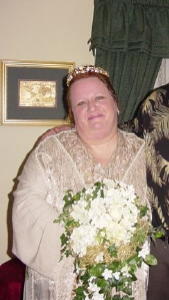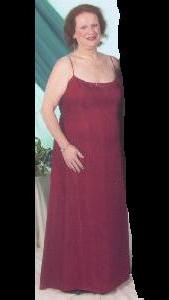 Lorrie S.
Lorrie S.

Obesity & Me
Describe your behavioral and emotional battle with weight control before learning about bariatric surgery.
What was (is) the worst thing about being overweight?
If you have had weight loss surgery already, what things do you most enjoy doing now that you weren't able to do before?
How did you first find out about bariatric surgery and what were your initial impressions of it?
Describe your experience with getting insurance approval for surgery. What advice, if any, do you have for other people in this stage?
What was your first visit with your surgeon like? How can people get the most out of this meeting?
What made you finally decide to have the surgery?
How did you decide which proceedure to have?
What fears did you have about having complications or even dying from from the surgery, and what would you tell other people having the same fears now?
How did your family and friends react to your decision? Would you have communicated anything differently if you could now? How supportive were they after your surgery?
How did your employer/supervisor react to your decision? What did you tell him/her? How long were you out of work?
What was your stay in the hospital like? How long where you there? What things are most important to bring?
Did you have any complications from the surgery? If so, how did you deal with them?
In the weeks after you got your surgery date, how did you feel? How did you cope with any anxiety you might have felt?
Describe your first few weeks home from the hospital. What should people expect from this period?
How far did you travel to have your surgery? (If far, how did this affect your aftercare?)
Please describe in detail what things you could and couldn't eat in the weeks and months following surgery. What foods have been off limits? Please explain how your dietary tolerance changed week-by-week, and then month-by-month since surgery.
What was your actvity level in the days and weeks after surgery?
What vitamins and/or dietary supplements have you taken since your surgery?
What side effects (nausea, vomiting, sleep disturbace, dumping, hair loss etc.) were worse for you? For how long after surgery did they persist? How did you cope with them?
What was the worst part about the entire bariatric surgery process?
What aftercare support group/program do you have? How helpful/important is this?
What is your scar like? Is this what you expected?
Please describe any plateau experiences you have had since surgery.
Do you notice people treating you any differently now?
Before & After
Roll over to see after photo


ARE YOU READY TO PAY IT FORWARD & SHARE YOUR JOURNEY? Your journey will help highlight the many ways weight loss surgery improves lives and makes a difference in our families, communities and world. EACH JOURNEY COUNTS as a voice towards greater awareness.
Share Now